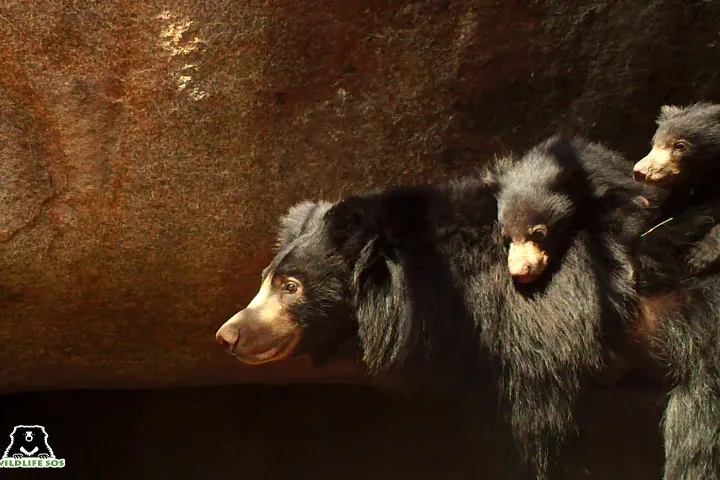Following India’s appeal and efforts, the International Union for Conservation of Nature has declared October 12 as the World Sloth Bear Day. This unique bear species – listed as Vulnerable in IUCN’s Red List — is mainly found in India while Nepal has a small population of this animal.
This least researched bear in the world is known to be bold and courageous to take on a pair of adult wild tigers to protect its cubs.
The Gentle Sloth #Bears
they feed on fruits, ants and termites. The sloth bear is a myrmecophagous bear species native to the Indian subcontinent
: Gfycat
pic.twitter.com/hV1XDJDPhQ @SlenderSherbet @CONTEMPRA_INN
— ContempraINN
(@CONTEMPRA_INN) January 17, 2021
Wildlife SOS India involved in sloth bear conservation and protection for over 25 years proposed to the IUCN to declare October 12 as the World Sloth Bear Day. This was accepted by the IUCN-SSC Sloth Bear Expert Team.
The first inaugural WSBD will be held at Wildlife SOS-run Agra Bear Rescue Centre in Uttar Pradesh – one of the world’s largest – which was established 1999 in collaboration with UP Forest Department.
One of the eight bear species, the sloth bear or Melursus ursinus has very distinct long, shaggy dark brown or black fur, distinct white V-shaped chest patch and four-inch-long ivory-coloured curved claws used for digging out termites and ants from rock-hard mounds.
Ninety per cent of these bears in the world are found in India and the Wildlife (Protection) Act of India, 1972 lists them under Schedule I, granting this species the same level of protection as tigers, rhinos and elephants.
In the past these bears were used for entertainment as dancing bears. Over the years Wildlife SOS has rescued and rehabilitated over 628 of them and also provided alternative livelihoods to the nomadic Kalandar community members, empowering the women and educating the children to prevent them from carrying on this illegal and cruel tradition.
Talking about these bears, the Co-Chairs of IUCN Sloth Bear expert team, Nishith Dharaiya and T. Sharp, said: “In many ways, Sloth bears are the most unique of all bear species, they carry their young on their back for 6-9 months, 50% of their diet is made up of termites and ants and they have the ability to chase off a full-grown tiger. Unfortunately, they face ever-increasing pressures from habitat loss and fragmentation as well as from other anthropogenic risks including illegal poaching. World Sloth Bear Day is a time to pause and reflect on the importance of protecting this truly unique species.”
Emphasising on the importance of the day, Wildlife SOS Kartick Satyanarayan observed: “This day is a rallying call for people around the world to learn about this lesser-known species and promote the conservation of Sloth bears so we never see a day without this species.”




















